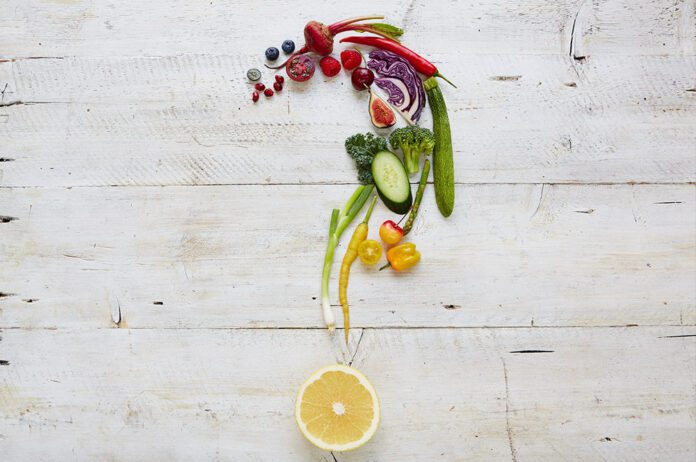Hi, I’m Jaye Alynn. This article reflects my opinion based on two decades of empirical data with Wellness Concepts. Nonetheless, I believe we can all agree that the ideals for calculating and implementing the optimal diet for health and weight management are far from clear and simple. The following nutrition myth list represents beliefs and battles I wage on behalf of clients, day after day, year after year, decade after decade. In reality, this list barely scratches the surface. Faulty beliefs frequently play a larger role in a failed diet than the actual food.
Without further delay, here is today’s list:
1. There is a “bad” macronutrient
Fats, Carbohydrates, and Animal Proteins have all seen their day in court. Every time something like ‘research’ comes out denouncing certain foods, a cultural response inevitably follows. Regardless of the intent behind a food-related mass marketing campaign, we have yet to see a large-scale impact on the obesity epidemic.
2. A calorie, is a calorie, is a calorie…
There is so much more to food than the supply of energy. Metabolism is a complex of chemical reactions that serve the purpose of sustaining life – including physically propelling you beyond the salivating jaws of the hungry saber tooth tiger. The fine minds of the scientific community estimate that there are somewhere between 30,000 and 50,000 plant-based nutrients (phytonutrients) in our natural food chain. We know that a wide and varied diet of those phytonutrients radically reduces our risks for degenerative diseases like cancer and diabetes. Consequently, we have to pay attention to the quality of any given food. Then, we have to keep an eye on how specific foods affect us as individuals
3. Adequate willpower will make any diet work
Willpower, in most cases, is an expression of deprivation, and the minute you tell yourself that you are forbidden, you begin to obsess. This is the beginning of a recipe for failure. If the diet you are implementing pushes too many of those buttons, or maybe just pushes the ONE GIANT RED button, the chances are that you are not engaging in a dietary lifestyle shift that you will be able to sustain. Willpower becomes an unnecessary judgment on your personal value and integrity. There’s just no room for that.
4. A salad is the ultimate diet food

I spend a lot of time working on getting my clients to eat more produce, and salads are definitely a big part of that. The difference comes in constructing a better salad.
5. Moderation is the key
In some ways, “Moderation” is a tool we use to grant ourselves permission to eat foods that tend to get us in trouble. Have you ever heard someone eating kale “in moderation” or talking about portion control when it comes to celery? Imagine what is really happening when you take a broad brush stroke to your complete dietary plan with the rubber-stamp, “Moderation.”
In practice, this results in a diet that has all the same constituents as before but now is simply calorie-restricted. I might argue that one of the primary reasons your diet got you where you are, comes from a status of imbalance and malnutrition.
6. If you eat less, you will lose weight
You won’t lose weight if you are not eating enough (minimum) to maintain your current physique. Your body does not possess a logic that rationalizes things like desirable BMI and skinny jeans. Your body is programmed to maintain homeostasis – which is a state of internal stability and equilibrium.
When it comes to weight loss (or gain), your body is constantly working to re-establish that equilibrium as you make changes. That results in plateaus and unhealthy weight loss if you’re not mindful of the feedback your body is broadcasting. Consequently, it is imperative that you ‘dial in’ the right factors to keep change moving in the right direction. Those factors could be a combination of calories, macro-nutrient ratios, eating windows, stress management, physical activity, and/or properly addressing any underlying health conditions.
7. Diet + Exersize= RESULTS
This myth is somewhat of an expansion of the previous entry. For decades, we have been guided by the tirade of calorie-restricted diets combined with exercise for healthy weight management. In my own experience conducting corporate fitness challenges, I was able to collect data from over 400 participants showing that almost every participant who lost weight during the challenge did so by retaining or adding fat and sacrificing lean tissue. Age and gender do come into play on this one. Adding hormones into the equation definitely complicates matters even more.
8. A vegetarian/vegan diet is the ultimate solution
In the past year, roughly 30% of my clients have been vegetarian. Does that mean that the vegetarian/vegan diet is ‘bad’? NO. That means that regardless of your reasoning for following any diet, you still have to be mindful about how you nourish your body at any given time in your day/life.
At the same time, I would argue that a vegetarian diet is not ideal for everybody, and it has absolutely nothing to do with WILLPOWER or ethics. Any person following a ‘perfect’ diet should not be dealing with weight issues or other degenerative-type conditions. When your diet is not producing the results you’re looking for; you have to re-evaluate with an open mind. Again, your body is not programmed to operate around your politics beyond the Placebo Effect, which has its limitations too.
9. WHEN you eat is more important than WHAT you eat

You don’t have to follow a ketogenic diet to benefit from fasting.
Still, there is nothing about fasting that changes how you acquire the nutrients required for metabolism and sustaining life. WHAT you eat is still pretty vital to your health goals, vitality, and longevity.
10. Nothing actually works for me as it does for other people
Most of my clients have been struggling for years before we find each other. More frequently than not, they will tell me that they think they have a pretty good diet. Then they regurgitate all the ‘diet-speak’ they have been conditioned to believe.
If your body isn’t responding to the dietary game plan you’re implementing, chances are pretty good that you are not asking the right questions or listening to feedback. It’s very much like every other relationship you have in your life, but it’s a little harder to get a divorce or ‘trade up’ when it’s your own body.
Which myth resonates with you?
Take it for whatever it’s worth. I have yet to meet a client whose inherent beliefs about food didn’t play a key role in their struggle to achieve a health goal. The most important thing to keep in mind is that you are a beautifully unique expression of humanity. Your ideal diet is just as uniquely yours, so stop trying to fit into someone else’s definition of how it should work and what you should eat. Claim your space and honor that relationship with YOU.







